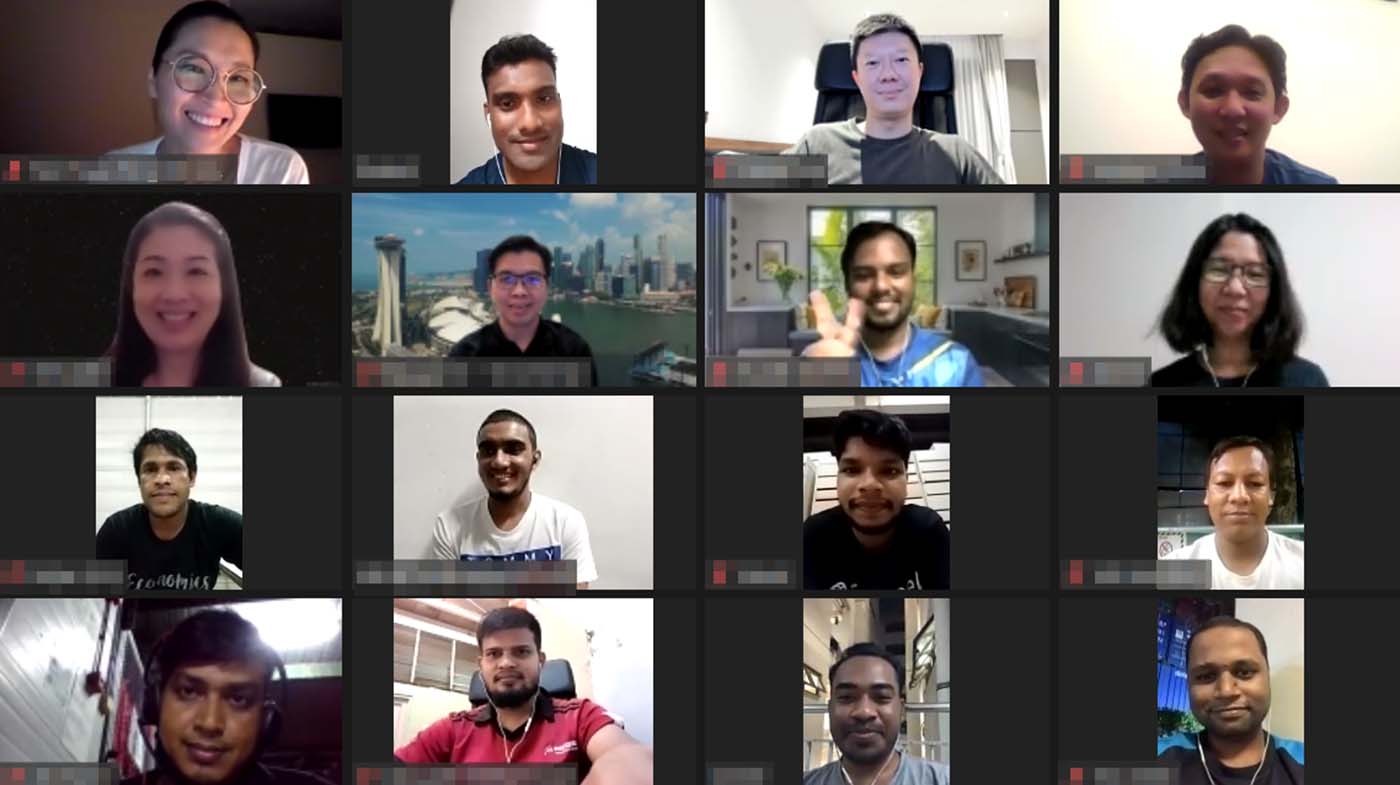Imagine working in a foreign country and not knowing how to speak the language. Discomfort, confusion and intimidation would be likely everyday companions. This is the plight of many migrant workers in Singapore. Their limited command of the English language often hampers their work and, more significantly, creates a divide between them and the local community.
SDI Academy, a social enterprise that Singapore Land (SingLand) is proud to support, was set up to offer a helping hand. The tool of choice: English lessons.
THE ROAD TO LITERACY
For SDI Academy’s founder Sazzad Hossain, the issues migrant workers face hit close to home, himself having migrated from Bangladesh with his family when he was 11 years old—few things are more isolating for a child than being in a classroom full of children and not knowing a word of what everyone is saying. “My own childhood experience with learning the English language gave me a glimpse of how language can open up many doors of opportunity,” he shares.
Mr Hossain’s encounters with migrant workers in his neighbourhood when he was still a teenager quickly revealed the challenges they face. To start with, many he spoke to were unable to understand safety instructions in English, which increased the likelihood of them getting into workplace accidents. Simple tasks like asking for directions were also a challenge. “They realise that upskilling is the only way that they can improve their career prospects and provide a better life for their families,” he shares.
“…upskilling is the only way that they can improve their career prospects and provide a better life for their families”
– Sazzad Hossain, Founder of SDI Academy
Since SDI Academy started in 2013, Over 8,500 migrant workers have learnt English through its in-person course. But, as with so many other things, the pandemic swiftly put an end to this. Supported with funding from SingLand, SDI Academy pivoted and launched Linger, an app that allows migrant workers to learn English through self-study for just $15 — a fraction of the cost of its physical classes.
About 10,000 migrant workers have enrolled for the online course since the pandemic started, 4,500 of which were sponsored by SingLand.
“Given the synergies between the business of a real estate company and the migrant worker community, we are invested in their well-being and believe it is our duty to also give back to migrant workers,” says Head of Legal, Teo Hwee Ping, who spearheaded the initiative. “We believe that literacy in English is one way to equip and empower them which will reap long-lasting benefits.”
The motivations behind migrant workers taking the course are expectedly varied. Outside of their work, many put in the time and energy to improve themselves for the sake of moving up the proverbial ladder. For others, a simple desire to converse in English and to better assimilate into the local community is all. Regardless of motivations, being able to speak in English has given many of them a sense of dignity in a foreign land, the value of which cannot be overstated.
“We are invested in their well-being and believe it is our duty to also give back to migrant workers”
– Teo Hwee Ping, Head of Legal
PUTTING IT INTO PRACTICE
In addition to the scholarships, our staff also volunteered to facilitate online sessions where migrant workers can practice speaking English with a local. “It’s not uncommon to hear of migrant workers who work in Singapore for 10 years or more and still not have any connection with the local community,” says Ms Teo, who has also personally facilitated these sessions. “Apart from basic needs of food and hygiene, what migrant workers need is connection.”
The virtual sessions SingLand has been involved in not only provided an opportunity for the migrant workers to interact with locals, but also allowed our staff to converse with them and get to know them too.
“There was a student in the first of the five cohorts I facilitated, who eventually became a co-facilitator for the English practice sessions I was involved in,” shares Ms Teo. “He recently shared how he has applied for a certification that would allow him to become a supervisor now that he is more proficient in English. It’s very rewarding when you see how the lessons are making a positive impact on their lives.”

